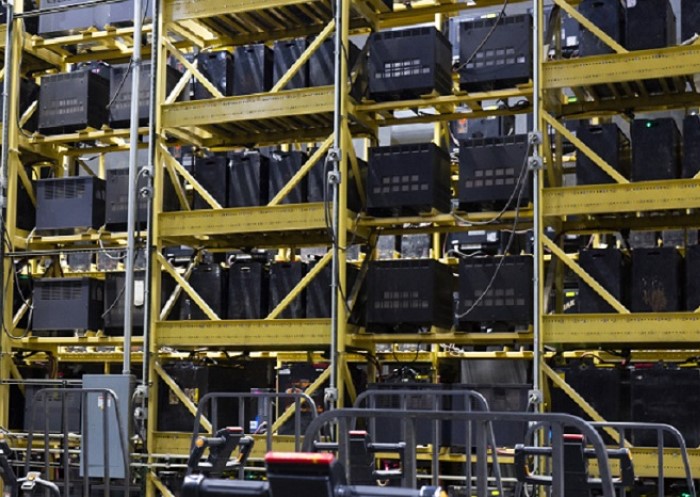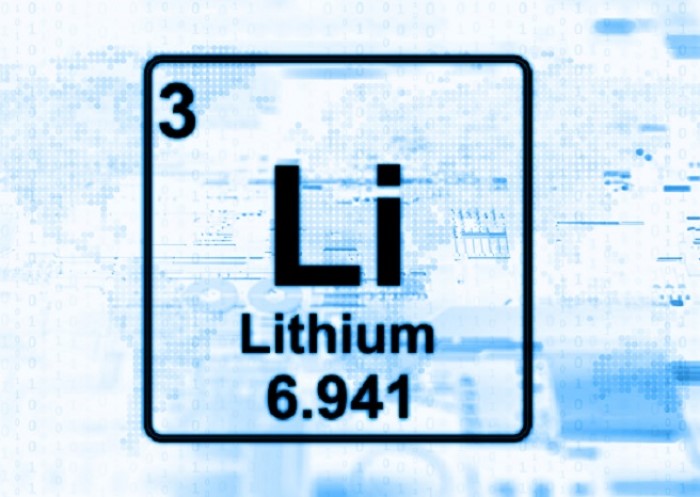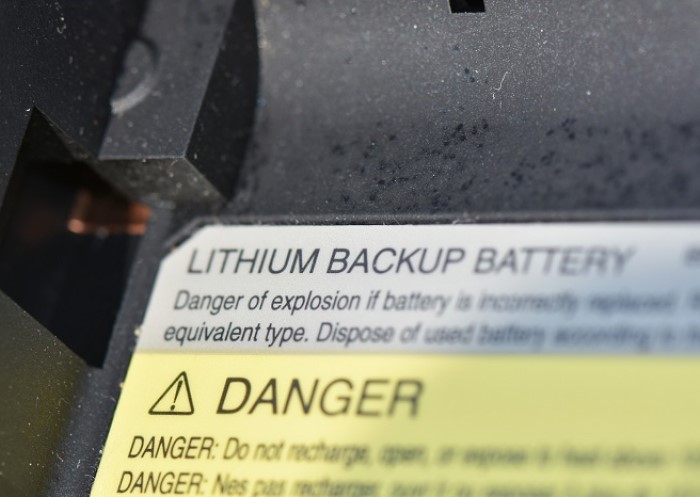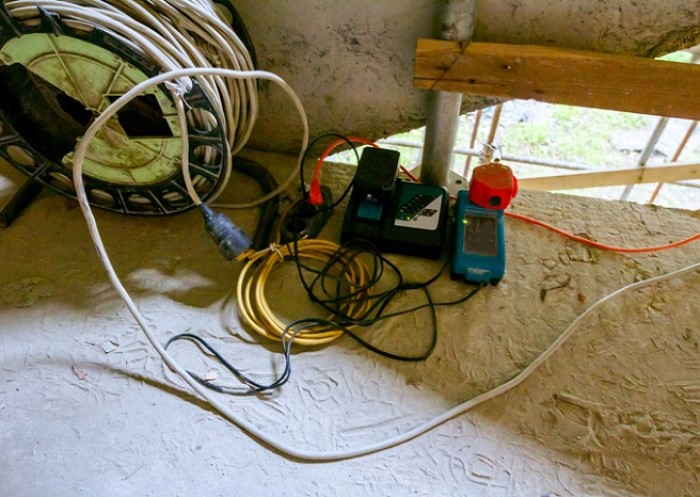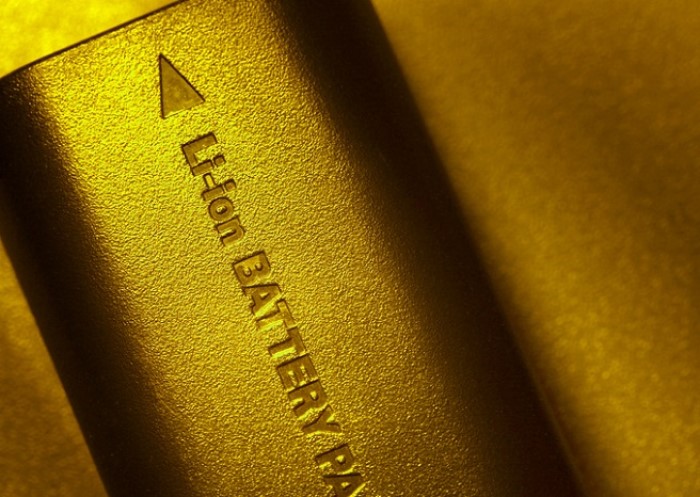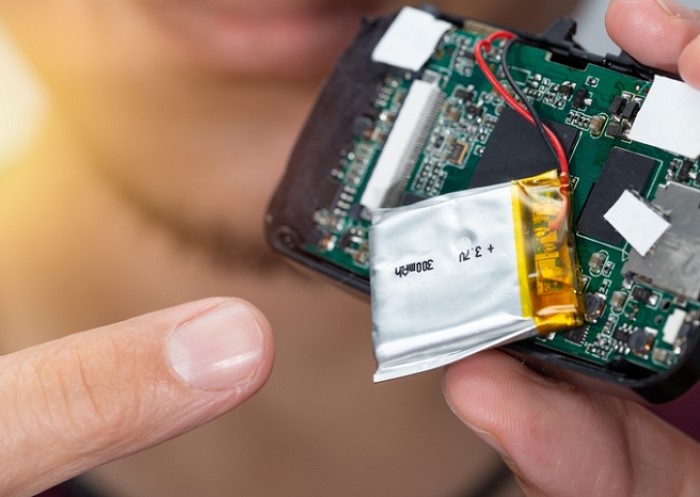Table of contents
Lithium-ion batteries, also known as Li-ion batteries, reliably supply various end devices with power, the spectrum of applications ranging from smartphones to cordless screwdrivers to pallet trucks and forklifts. To ensure that these batteries remain powerful for as long as possible, it is not only important to charge the lithium-ion batteries correctly, but also to ensure they are stored properly. In our guide, you can learn the best ways to store a lithium-ion battery, how to reduce risk of fire and how to prevent damage to batteries even during longer storage periods.
Fire hazards when storing Li-ion batteries
There are many advantages that lithium-ion batteries offer in comparison to conventional batteries: they are enormously powerful, have comparatively short charging cycles, and there is no memory effect if used correctly. Li-ion batteries differ from lithium metal batteries in the fact that the latter are not rechargeable and can be used to power devices such as wristwatches, for example.
The greater the power of a Li-ion battery, the more battery cells are required and the greater the risk of fire. Particularly powerful batteries, such as those used in pallet trucks or stacker trucks are therefore more prone to fire hazards than accumulators with lower performance, which is why safe storage is so important. Nevertheless, the risk of fire is extremely low if lithium-ion batteries are stored correctly.
Improper storage of lithium-ion batteries in damp environments or near heat sources and flammable substances can lead to dangerous fires. The reason for this is the electrochemical construction of lithium-ion batteries. The lithium contained in these batteries is particularly reactive: it reacts violently to contact with water and is unstable at high ambient temperatures.
If the ambient temperature is too high, flammable gases can form inside the batteries due to chemical processes. From a cell temperature of 70° Celsius, a thermal runaway can occur, causing the battery to ignite and burn. If only one battery cell in the group overheats, the neighbouring cells can also overheat, causing a chain reaction and an explosion or an uncontrolled fire as a result.
Safe storage of lithium ion batteries: What to look out for
To ensure battery units last as long as possible and to prevent storage damage or fires, take note of the following points when it comes to the safe storage of lithium-ion batteries:
- Choose a cool and dry place for lithium-ion battery storage
To prevent the batteries from overheating during storage, they should be stored at temperatures between 10 and 40 degrees Celsius. This means that cellars, cold storage rooms or refrigerators are suitable – but only if they are dry and frost-free.
- Storing lithium-ion batteries with protected terminals
Lithium-ion batteries should be stored with protected terminals to protect them from short circuits. The best way to do this is to tape them or cover them with terminal protection caps. Storage in the corresponding electrical appliance also protects the terminals and prevents damage caused by impact. If a battery is permanently installed in a device, it must be checked for leaks, loose cables, and other damage before being put into storage. In addition, it should also be stored in a cool place protected from condensation.
- Protection against mechanical damage
To ensure the safe storage of lithium ion batteries, you must ensure that fire protection against internal and external short circuits is provided. Make sure that the lithium-ion batteries are not exposed enough to be hit accidentally and prevent mechanical damage by counteracting a short circuit of the battery poles with appropriate pole protection caps.
- Avoid high temperatures
Avoid storing the Li-ion batteries in a place prone to sudden or permanently high temperatures. The batteries should also be protected from direct sunlight.
• If no automatic extinguishing systems are installed in the storage rooms, the lithium batteries must be stored at least 2.5 metres away from other flammable stored goods.
• Damaged or defective batteries should be stored in specialised safety containers, and until you can properly dispose of lithium-ion batteries, you should store them in a separate area. - Store lithium-ion batteries with half charge
It is not recommended that a lithium-ion battery be put into storage empty, but rather at a charge capacity of 50 to 70 percent. This prevents a deep discharge, which can have a negative effect on battery performance, shorten service life or even cause the Li-ion battery to malfunction.
- Check the charge level regularly
If you store a lithium-ion battery for a longer period, the charge level should be checked at regular intervals. A short charge every three to four months can be useful here to protect the battery from deep discharge.
- Observe the manufacturer’s instructions
For the safe storage of lithium-ion batteries, it is always advised to follow the manufacturer’s instructions and product data sheet notes that come with each unit.
Hazard classes determine the storage of lithium-ion batteries
There are no public UK regulations on the storage of lithium-ion batteries, however, it is still recommended that they be treated and stored as a hazardous material.
According to UK regulations on hazardous material storage, lithium-ion and lithium-polymer batteries must be stored in appropriate hazardous materials cabinets and containers. This goes, not only for the storage, but also the transport of lithium batteries, as under transport regulations they are officially recognised as Class 9 hazardous goods. Safety cabinets should be in accordance with BS EN 14470 and container and transport systems should be ADR-compliant with a fire protection function.
General storage and transport regulations also differ depending on battery performance classification (low, medium, and high performance) and there are different hazard classes for lithium-ion and lithium-metal batteries, which further determine storage requirements. As there are no significant differences in the storage requirements for lithium-polymer batteries and lithium-ion batteries, the same regulations apply to them in the following overview:
| Power | Symbol | Lithium metal battery (UN 3090) | Lithium-ion battery (UN 3480) |
|---|---|---|---|
| low* | 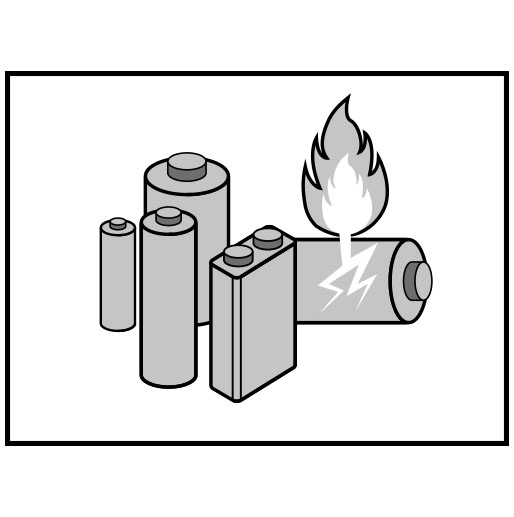 | < 2 g Li per battery | < 100 Wh per battery |
| medium** |  | > 2 g Li per battery and < 12 kg gross weight per battery | > 100 Wh per battery and < 12 kg gross weight per battery |
| high*** |  | > 2 g Li per battery and > 12 kg gross weight per battery | > 100 Wh per battery and > 12 kg gross weight per battery |
*Low power: General UK safety regulations apply to lithium-ion batteries in this class. If lithium-ion batteries or lithium-metal batteries are stored in larger quantities (volumes over 7m3), the regulations for medium power batteries apply.
**Medium power: Here, the focus is primarily on fire protection. Lithium batteries in this classification must be stored at least 5m away from other warehouse storage areas, especially areas housing materials that are particularly flammable. In addition, storage areas must be equipped with a fire alarm system that has a connection to a permanently manned office. Fire extinguishing systems and extinguishing agents must be provided in accordance with the manufacturer’s instructions. For storage volumes covering an area of more than 60m2 or more than 3m in height, the provisions for high-power lithium batteries apply.
***High power: There arecurrently no concrete UK safety regulations for the storage of high-power lithium-ion batteries. Protective measures for these types of batteries are usually made in agreement with the property insurance firm covering the location where the batteries are stored. In principle, the specifications for medium power batteries should be complied with. Other measures, such as separation and quantity limits for the storage of high-power lithium batteries are recommended to provide additional safety.
FAQ on the storage of lithium-ion batteries
How long you can store lithium-ion batteries depends largely on the conditions of storage. Compared to nickel-cadmium batteries, for example, whose self-discharge rate of 10 to 15 per cent is much higher than that of lithium-ion batteries, Li-ion batteries are relatively easy to care for and can be stored for a long time.
If you follow the instructions described above, modern accumulators can be stored undamaged for several years with continuous operation and multiple recharges.
Modern lithium-ion batteries tend to self-discharge even when not in use. Permanent self-discharge can lead to deep discharge which can damage or even destroy the battery.
Deep discharge occurs when the power level falls below the discharge voltage, i.e. the battery capacity is completely exhausted. However, a discharge during storage of lithium-ion batteries is usually only 1-3% per year. Here too, it is best to follow the manufacturer’s instructions.
The following points should be observed for the safe storage of lithium-ion batteries:
• Choose a dry place
• Avoid high or fluctuating temperatures and frost-prone environments
• Protect poles against short circuits
• Store Li-ion batteries at a charge level of about 50 to 70%
• Check the loading capacity regularly
• Protect lithium-ion batteries from mechanical damage
• Store batteries separately from their operational device
• Observe the manufacturer’s instructions and product data sheet
Proper and safe storage of lithium-ion batteries is important as it ensures durability, continuous performance, and avoids the risk of dangerous fires and damage to the battery.
Image source:
© gettyimages.de – Fertnig

